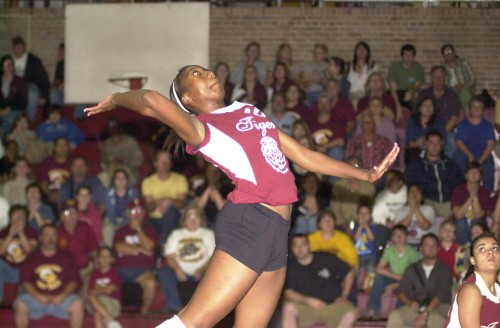
Terrebonne moves on; Bourgeois season ends
November 7, 2006
Bad driving ends with drug arrest
November 9, 2006(Posted Nov. 7, 2006)
Has Hurricane Katrina reconstructed the Terrebonne-Lafourche areas marshes, causing an increasing number of mosquitoes this time of year? Some say yes.
According to Mosquito Control, Inc., of Houma, the number of daily mosquito sprays over the past few weeks has been stepped up in the Terrebonne-Lafourche area because of an increase of mosquitoes.
Mosquito Control, Inc., anthropologist Steve Pavlovich said the increase in mosquitoes depends on weather conditions. Normally, around this time of year the population is lower and requires very little spraying.
The anthropologist said the increase in mosquitoes was not something expected for this time of the year because there haven’t been any natural disasters to stimulate the population.
“Last year after Hurricane Katrina, we sprayed right through the months of December, January and February because the high tides flooded the marshes and caused the mosquito eggs to hatch rapidly,” he said.
Pavlovich said when Hurricane Katrina hit, it affected the make up of the marshes allowing additional breeding sites to be formed and causing a higher population of mosquitoes.
“During the week of Oct. 16th through Oct. 23rd, Southern Louisiana received a substantial amount of rainfall that contributed to the high tides in the marshes,” he said. “In many of the locations there was approximately 4 inches of rainfall.”
Pavlovich said another caused could be the dryness in the area this spring that left marshes exposed that wouldn’t normally be exposed, allowing the mosquitoes to breed in the moist soil. “As a result of the dry conditions, mosquitoes were able to lay their eggs and wait for them to hatch when a good rain or high tide came along,” he explained.
Because of the recent reports of roads closures due to rainfall and high tides in the Terrebonne-Lafourche areas, Pavlovich said Mosquito Control knew it would have to increase spraying.
“We have a pre-dawn spray between 4 a.m. and 6 a.m., then the sprayers spray periodically during the day around the levees and an afternoon spray between 5 p.m. and 8 p.m.,” he said.
Pavlovich said the decision was made to increase the spray times to ensure that more areas would be covered in hopes of cutting the number of mosquitoes multiplying in the areas. “Salt marsh mosquitoes are aggressive, therefore we have to be aggressive toward them,” he said.
Pavlovich said he doesn’t know what to expect during the winter months, but said officials are keeping a close watch on the mosquito increases.






